- europages
- >
- COMPANIES - SUPPLIERS - SERVICE PROVIDERS
- >
- surface tension
Results for
Surface tension - Import export
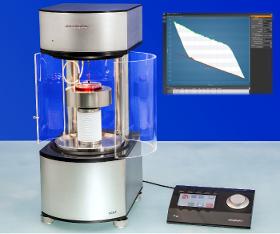
DATAPHYSICS INSTRUMENTS GMBH
Germany
The tensiometers of the DCAT series are measuring instruments for force-based investigation of surface and interface properties. Because of the compact and modular product design of the DCAT series, a bespoke combination of device and accessories can be found for any use case. The DCAT 25SF single-fibre tensiometer contains a high-precision weighing system with a resolution of up to 0.1 μg. This enables measurements even on single carbon or glass fibres. Measurements can be carried out at defined humidity and at temperatures between -15 °C and 135 °C. In addition is it possible to investigate the viscoelasticity of monolayers. Furthermore, concentration series for determining the critical micelle concentration (CMC) can be automatically generated and measured. Measurements: - surface and interfacial tension - liquid density - dynamic contact angles - surface energy of solids - determination of the CMC - surface pressure - viscoelasticity of monolayers
Request for a quote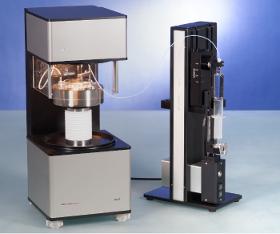
DATAPHYSICS INSTRUMENTS GMBH
Germany
The tensiometers of the DCAT series are measuring instruments for force-based investigation of surface and interface properties. Because of the compact and modular product design of the DCAT series, a bespoke combination of device and accessories can be found for any use case. The DCAT 15 is the standard model of the DCAT series and offers more measurement methods and modular extensions compared to the entry-level models. In addition to measuring surface and interfacial tension as well as density, the DCAT 15 can be used to determine dynamic contact angles, the surface energy of solids and to investigate sedimentation and penetration properties. Together with the LDU 25 liquid dosing unit, automatic concentration series can be generated to determine the critical micelle formation concentration. Measurements: - surface and interfacial tension - liquid and solid density - dynamic contact angles - surface energy of solids - determination of the critical micelle concentration (CMC)
Request for a quote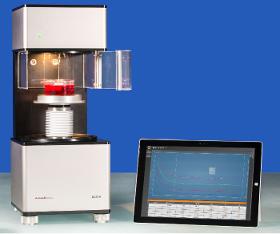
DATAPHYSICS INSTRUMENTS GMBH
Germany
The tensiometers of the DCAT series are measuring instruments for force-based investigation of surface and interface properties. Because of the compact and modular product design of the DCAT series, a bespoke combination of device and accessories can be found for any use case. The DCAT 9 is the powerful entry-level model of the product series. It allows the measurement of surface and interfacial tensions as well as the determination of the density of solids and liquids. Possible measurements: - surface and interfacial tension - density of solids and liquids
Request for a quote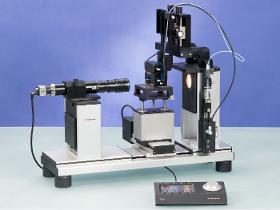
DATAPHYSICS INSTRUMENTS GMBH
Germany
The optical contact angle meters of the OCA series are high-precision measuring systems for the characterisation of interfaces and surfaces. They combine high-resolution optics, pinpoint liquid dosing and precise sample positioning to create powerful, reliable measuring systems. The expert model OCA 200 is the contact angle measuring instrument for microscopic and macroscopic structures. Thanks to the 10x zoom lens and the autofocus system, the OCA 200 is suitable for any sample size from the macroscopic silicon wafer to the microscopic metal struts of a coronary stent. Together with the PDDS picolitre dosing system, the OCA 200 allows the analysis of droplets with a minimum volume of up to 30 picolitres. Measurements: - static contact angle - dynamic contact angle - interfacial and surface tension - surface energy - viscoelastic modulus - work of adhesion
Request for a quote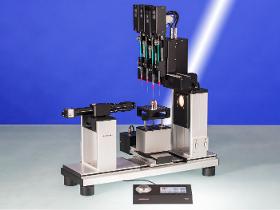
DATAPHYSICS INSTRUMENTS GMBH
Germany
The optical contact angle meters of the OCA series are high-precision measuring systems for the characterisation of interfaces and surfaces. They combine high-resolution optics, pinpoint liquid dosing and precise sample positioning to create powerful, reliable measuring systems. The premium model OCA 50 is a fully automatic contact angle meter. It is suited perfectly to investigate the wettability of solid surfaces and determine their surface energy. Complete measurement sequences from dosing and sample positioning to parameter analysis can be programmed according to the operator’s own specifications. The measurement sequences can be played repeatedly without manual intervention and thus meet highest reliability standard for measurement results. A special variant of the device enables measurements even on large 12″ wafers. Measurements: - static contact angle - dynamic contact angle - interfacial and surface tension - surface energy - viscoelastic modulus - work of adhesion
Request for a quote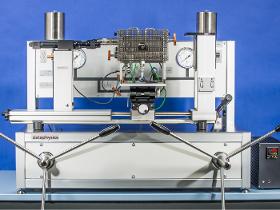
DATAPHYSICS INSTRUMENTS GMBH
Germany
The optical contact angle meters of the OCA series are high-precision measuring systems for the characterisation of interfaces and surfaces. They combine high-resolution optics, pinpoint liquid dosing and precise sample positioning to create powerful, reliable measuring systems. The special model OCA 25-PMC is based on the OCA 25 standard model. With its high-pressure measuring chamber, the special model OCA 25-PMC offers the possibility of carrying out measurements of interfacial tensions and contact angles under high-pressure of up to 750 bar and at temperatures between -30 °C and 200 °C. This makes the OCA 25-PMC the ideal solution to investigate, for example, the interfacial tension between a surfactant solution and crude oil in reservoir conditions. It is also possible to determine the contact angle, for example, between rock, oil, and surfactant solution.
Request for a quote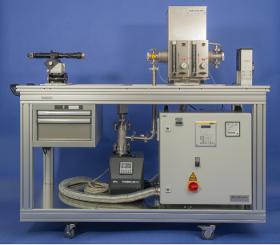
DATAPHYSICS INSTRUMENTS GMBH
Germany
The optical contact angle meters of the OCA series are high-precision measuring systems for the characterisation of interfaces and surfaces. They combine high-resolution optics, pinpoint liquid dosing and precise sample positioning to create powerful, reliable measuring systems. The special model OCA 25-HTV is based on the OCA 25 standard model. It is suitable for measuring contact angles at high temperatures of up to 1800 °C and in a vacuum of up to 0.00001 mbar or in an inert gas atmosphere. With an optional dosing system, the OCA 25-HTV can also be used at room temperature for all standard analyses such as the determination of surface energy and the measurement of interfacial tensions.
Request for a quote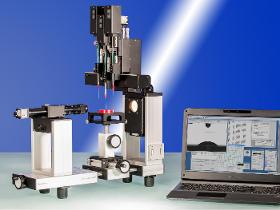
DATAPHYSICS INSTRUMENTS GMBH
Germany
The optical contact angle meters of the OCA series are high-precision measuring systems for the characterisation of interfaces and surfaces. They combine high-resolution optics, pinpoint liquid dosing and precise sample positioning to create powerful, reliable measuring systems. The OCA 25 standard model is the all-purpose system for contact angle measurements and drop shape analysis. The high-performance camera makes it possible to measure contact angles even on adsorbent surfaces such as tissues or powders. Compared to the entry-level OCA 15, additional measurements at temperatures of up to 700 °C are possible. Further advantages are the more precise positioning of the sample table as well as the compatibility with many more dosing systems, which allow electronic dosing and droplet volumes down to a minimum of ten nanolitres. Measurements: - static contact angle - dynamic contact angle - interfacial/surface tension - surface energy - viscoelastic modulus - work of adhesion
Request for a quote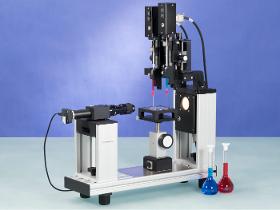
DATAPHYSICS INSTRUMENTS GMBH
Germany
The optical contact angle meters of the OCA series are high-precision measuring systems for the characterisation of interfaces and surfaces. They combine high-resolution optics, pinpoint liquid dosing and precise sample positioning to create powerful, reliable measuring systems. The entry-level model OCA 15EC enables basic methods of professional contact angle measurement and drop shape analysis. Thanks to the modular construction, even this entry-level model can be combined with many accessories, such as the TBU 100EC tilting unit. Possible Measurements: - static contact angle - dynamic contact angle - interfacial/surface tension - surface energy - viscoelastic modulus - work of adhesion
Request for a quote
ALWA TECHNISCHE PRODUKTE FÜR KUNSTSTOFFVERARBEITUNG, MODELL UND FORMBAU GMBH
Germany
Master patterns must be treated with ALWA surface tension remover (art. no. 9500000), so that the ALWA release lacquer does not roll off. ALWA surface tension remover is applied in a thin coat with a brush or a sponge. After approx. 10 min. the solvent is evaporated and ALWA release lacquer can be applied.
Request for a quote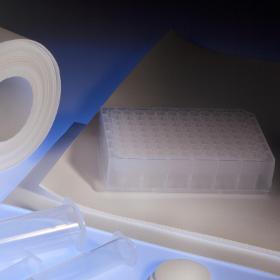
POREX TECHNOLOGIES GMBH
Germany
Remove contaminants from protein samples without plugging or breakthrough Protein precipitation is widely used in downstream processing of biological products to concentrate proteins and purify them from various contaminants. POREX® Precipitation Membranes aid in the removal of contaminating lipids, salts and proteins from samples prior to LC-MS/MS without plugging or breakthrough. Designed to retain acetonitrile, methanol and other organic solvents our protein precipitation media solutions: Retain acetonitrile, methanol and other organic solvents. Provide reproducible and consistent results and are chemically inert, hydrophobic, oleophobic, while containing no leachables Increase efficiency through elimination of time-consuming centrifugation and transfer steps. Are independently tested for solvent leakage, nonspecific binding, flow rates and well blockage by LC-MS/MS. Are a PE based solvent support media solution - designed to retain low surface tension organic solvents for...
Request for a quote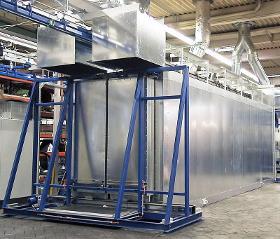
RIPPERT ANLAGENTECHNIK GMBH & CO. KG
Germany
For temperatures up to 450 °C. High-temperature furnaces Tempering furnace for car chassis stabilisers Previously cold-formed workpieces, e.g. stabilisers, are heated up in the tempering furnace at circulating air temperatures of up to 450°C and maintained at this temperature for an adjustable dwell time. This tempering increases toughness and dissipates residual stresses. Preheating furnace for frying pans and roasting tins Pan blanks are heated up to a temperature of approx. 390 °C and burnt free of all grease and oil residues. Enamelling furnace for frying pans and roasting tins The PTFE coating sprayed beforehand onto the frying pans is baked on at a temperature of approx. 450 °C. PTFE is used as a non-stick coating for frying pans and cooking pots on account of its low surface tension and good heat resistance. Chamber enamelling furnace for aluminium sheet metal forms Baking on of the single or multi-layer PTFE coatings at approx. 450 °C.
Request for a quote
PROPACK DICHTUNGEN UND PACKUNGEN AG
Germany
Für die perfekte Instandhaltung von Dichtung und Maschine Aktive-Lubricant 210 Synthetic Multifunctional Fluid in State-of-the-Art Formula Characteristics Greasing - due to modern OMC2 additive technology Detergent - penetrates dirt and decomposes any kind of sealing Penetrates corrosion- due to extremely low surface tension Moisture displacing - due to seperation effect between metal and water Anti - corrosive - due to the ultra thin protecting film available as 500 ml Aerosol container 5 l Can Chain and Cable Grease Bright 250 Fully Synthetic Adherent Lubricant Characteristics Excellent wear protection Perfect adhesiveness Chemically stable Penetrates and lubricates No sealing up Water resistant Long term protection against corrosion available as: 500 ml Aerosol container 5 l Can 20 l Cam High Speed Degreaser 310 Residue-Free Evaporating Solvent Cleaner Characteristics For toughest oil and grease contamination Cleans and degreases reliably Fast and residue-free...
Request for a quote
PERO AG
Germany
Wet media differ greatly as regards safe handling, service life and cost of treatment. Surface tension Degreasing properties Cleaning properties Drying properties Residues Filtration properties Bag filter Cartridge filter Distillation Screen basket filter Settling chamber Micro/Ultrafiltration Filling Stabilising Distilling ReFilling Stock bath Bath treatment/Titration Bath change Disposal
Request for a quote
ILUDEST DESTILLATIONSANLAGEN GMBH
Germany
For liquidliquidextraction according to the MixerSettlerprinciple, design acc. to Dr. E. Müller (Lurgi). With screw stirrer for intensive mixing of the phases, especially suited for metallic salt extraction. Pumping capacity and residence times are changed by adjusting the stirrer speed. An additional advantage of the unit is the application for extractions during which reactions of considerable density changes occur. Typical applications for this universal apparatus are metal salt extractions mixtures with low surface tension if the dispersed phase coalesces with difficulty if variation in residence time of the phases occur in the extraction stages if reactions are expected during the extraction process if considerable changes in density are expected as a result of extraction
Request for a quote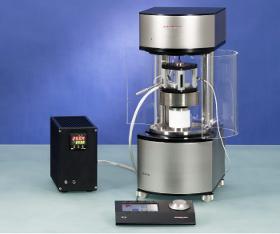
DATAPHYSICS INSTRUMENTS GMBH
Germany
The tensiometers of the DCAT series are measuring instruments for force-based characterisation of surfaces and interfaces. Because of the compact and modular product design of the DCAT series, a bespoke combination of device and accessories can be found for any use case. The DCAT 25 is the multifunctional all-round model of the series. Measurements can be carried out at defined humidity and at temperatures between -15 °C and 300 °C. In addition it is possible to investigate the viscoelasticity of monolayers in combination with the Langmuir trough module LTMr. As the only tensiometer in the DCAT series, this model can analyse the adhesive force extensively thanks to an additional camera module. Measurements: - surface and interfacial tension - liquid density and solid density - dynamic contact angles - surface energy of solids - critical micelle concentration (CMC) - sedimentation and penetration - analysis of adhesive force - surface pressure - viscoelasticity of monolayers
Request for a quote
DIENER ELECTRONIC GMBH & CO. KG
Germany
A prerequisite for the adhesion of an adhesive or coating to a surface is wetting. For wetting to take place, the surface energy of the substrate must be greater than that of the coating. In particular, very many plastics have a very small surface energy and are correspondingly difficult to bond. Often the aim of a plasma treatment is to make a surface wettable and bondable. The wettability can easily be tested with test inks. Diener electronic supplies a test ink set with 8 liquids with surface tensions between 30 and 73 (105) mN/m suitable for most practical applications. There is also a set of 23 test inks, with additional gradations between 30 and 73 (105) mN/m.
Request for a quoteDo you sell or make similar products?
Sign up to europages and have your products listed
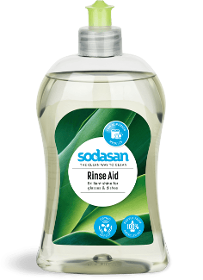
SODASAN WASCH- UND REINIGUNGSMITTEL GMBH
Germany
The product reduces the surface tension. This causes water to run off better. As a result, your dishes will dry without spots for a shiny clean. Dosage Fill the appropriate compartment of your dishwasher with Rinse Aid. Please observe the dosing instructions for your dishwasher. Your dishwasher will automatically dose the Rinse Aid in the final rinse cycle. aqua citric acid alcohol denat. potassium citrate lauryl glucoside decyl glucoside
Request for a quote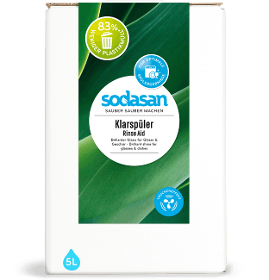
SODASAN WASCH- UND REINIGUNGSMITTEL GMBH
Germany
For brilliant dishwashing and drying results without limescale or water spots. Fragrance free. In combination with sodasan machine detergent powder or sodasan machine detergent tabs, it ensures optimal washing results. Can be used in all standard dishwashers. The product reduces the surface tension. This causes water to run off better. As a result, your dishes will dry without spots for a shiny clean. Dosage Fill the appropriate dispenser of your dishwasher with Rinse Aid. Please observe the dosing instructions for your dishwasher. Your dishwasher will automatically dose the Rinse Aid in the final rinse cycle. aqua citric acid alcohol denat. potassium citrate lauryl glucoside decyl glucoside
Request for a quote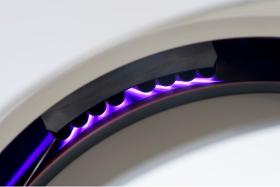
AFS ENTWICKLUNGS + VERTRIEBS GMBH
Germany
The effect achieved by the corona treatment is an increase in surface tension to values between 38 to 60 mN/m. Since the surface tension is caused by dispersive and polar interaction components the introduction of polar functional groups in particular increased the polar component of the surface tension.
Request for a quote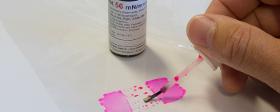
AFS ENTWICKLUNGS + VERTRIEBS GMBH
Germany
Measurement of the surface tension The adhesion of a surface is usually directly dependent on the surface energy. If the surface energy is substantially lower than that of the printing ink used, the wetting is disturbed, resulting in poor adhesion. For this reason, plastic surfaces have to be pre-treated. Depending on the type of ink used the surface tension required can vary: solvent based inks => 38 bis 42 mN/m (=Dyn/cm) water soluble inks => 40 bis 44 mN/m UV inks => 44 bis 46 mN/m With the test inks of AFS, which are available from 34 to 56 dyn/cm surface tensions of plastic films can be easily and reproducibly determined according to DIN ISO 8296. Depending on whether the ink sticks or bubbles on the surface it indicated whether the surface tension is above or below the dyne-value of the currently used test ink. We also offer the test inks in a case with 12 bottles from 34 to 56 dyn/cm.
Request for a quoteResults for
Surface tension - Import exportNumber of results
22 ProductsCountries
Company type
Category
- Testing equipment (3)
- Laboratory equipment and instruments (2)
- Measurement - Equipment & Instruments (2)
- Cleaning machines, industrial (1)
- Detergents, household (1)
- Food packaging (1)
- Ink jet printing (1)
- Laundry detergents for household use (1)
- Measurement and control instruments (1)
- Pressure regulators (1)
- Scientific research equipment (1)
- Surface treatment - machinery and equipment (1)
- Water extraction - systems and equipment (1)
- Weight and mass - measurement and regulation instruments (1)